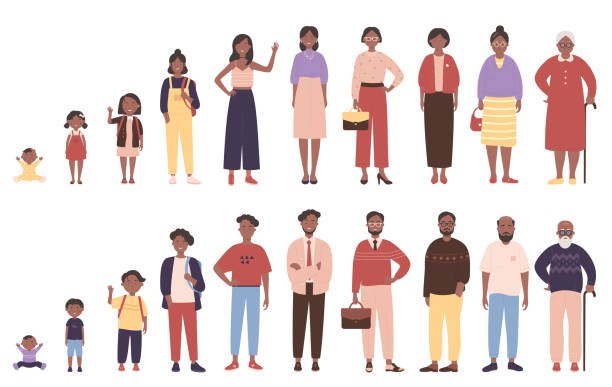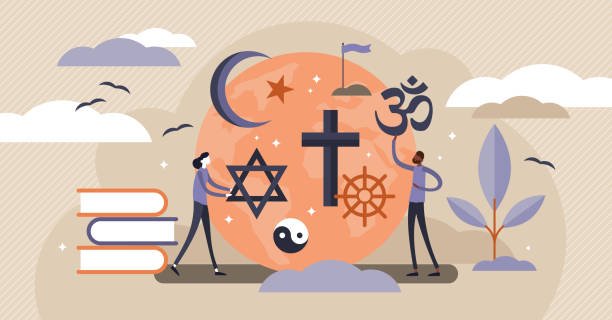On this page, we analyse why human rights violations still exist in the South African country despite various government projects aimed at eliminating these practices.
The Enduring Issue of Human Rights Violations in South Africa: A Comprehensive Analysis
Despite South Africa’s laudable constitution, which serves as a blueprint for human rights and social justice, the nation grapples with an array of human rights violations. This creates a disturbing paradox: why do these abuses continue to plague society despite various government initiatives aimed at eradicating them? This article aims to examine the complexity of this issue, seeking to understand the factors contributing to the persistence of human rights violations.
Why do Human Rights Violations Still Exist in the South African country despite various government projects aimed at eliminating these practices?
The persistence of human rights violations in South Africa despite various government initiatives can be attributed to a complex interplay of historical, systemic, and cultural factors. The enduring legacy of apartheid has created structural inequalities that are deeply embedded in society, affecting everything from economic opportunity to access to education and healthcare. Government projects, while well-intended, often tackle only the symptoms rather than these root causes. Compounding the issue is a lack of accountability and pervasive corruption within governmental institutions, which undermines the efficacy of these projects. Finally, societal norms and beliefs, such as deeply rooted patriarchal values and stigmas against marginalized communities, add another layer of complexity, often going unaddressed in government initiatives aimed at promoting human rights.
Historical Context
The long-lasting impact of apartheid can’t be overstated when discussing the persistence of human rights abuses. Apartheid was not merely a system of racial segregation but an institution that seeped into the very fabric of society, exacerbating inequalities that extend far beyond race. Even after its abolition, the socioeconomic structures that apartheid created continue to affect the lives of South Africans. For instance, the Bantu Education Act of 1953, which was part of the larger apartheid system, led to an education system that still struggles with inequality today. The spatial segregation enacted under apartheid laws like the Group Areas Act continues to impact housing and land rights, making it difficult for many to escape the cycle of poverty.
Another legacy of apartheid is the normalization of violence as a method of social control, leading to elevated levels of violence and abuse today. From police brutality exemplified in cases like that of Andries Tatane, who was killed by police during a protest in 2011, to domestic violence rates that remain alarmingly high, the culture of violence is a significant obstacle to human rights. Not forgetting the Marikana Massacre of 2012, where striking mineworkers were shot down, indicating a continuity of disregard for workers’ rights and human dignity.
Ineffectiveness of Government Projects and Corruption
Numerous government projects have been launched with the aim of eliminating human rights abuses, but their success has been limited. One reason is that these initiatives often focus on the symptoms rather than addressing root causes. For instance, social welfare programs may provide temporary relief for impoverished communities but fail to address the underlying issues of unemployment and lack of access to quality education. Similarly, gender-based violence campaigns may raise awareness but do little to change the systemic patriarchy that perpetuates violence against women.
Moreover, corruption remains a significant barrier to the effectiveness of these projects. The arms deal scandal of the late ’90s and early 2000s showed how corruption could go to the highest levels of government, breeding cynicism among the populace. More recent examples include the allegations of corruption in the COVID-19 relief funds, further eroding public trust. When funds allocated for human rights projects are misused, it not only diminishes the efficacy of these initiatives but also prolongs the conditions that enable human rights violations.
Socio-Economic Factors and Cultural Barriers
South Africa has one of the world’s highest levels of income inequality, contributing to an environment ripe for human rights abuses. The vulnerability of the poor makes them easy targets for exploitation in various forms, such as child labor in the agricultural sector or human trafficking for forced labor and sexual exploitation. Another example is the “corrective” rape aimed at changing the sexual orientation of lesbian women, which is a grim reflection of how social and economic vulnerability intersect with discriminatory cultural beliefs.
Speaking of culture, traditional practices and belief systems can also pose challenges. For example, the initiation schools in some communities have been criticized for practices that risk the health and even lives of participants. Patriarchal norms contribute to the high rates of gender-based violence, with one in four women experiencing physical or sexual violence, according to a South African Medical Research Council study. Cultural stigma surrounding HIV/AIDS contributes to discrimination against affected individuals, another example of how cultural barriers exacerbate human rights issues.
Examples
Here is a list of 10 examples of human rights violations in South Africa, along with reasons for each.
1. Police Brutality
- Reason: The culture of violence, stemming from the apartheid era, has influenced law enforcement methods. Officers often resort to excessive force, perpetuating human rights abuses.
2. Gender-Based Violence
- Reason: Deeply rooted patriarchal norms and traditional belief systems contribute to high rates of violence against women, including domestic abuse and “corrective” rape.
3. Discrimination Against LGBTQ+ Individuals
- Reason: Cultural stigmas and religious beliefs often foster discrimination against LGBTQ+ people, including the denial of basic rights and services.
4. Land Rights and Displacement
- Reason: The legacy of the apartheid-era Group Areas Act, which enacted racial zoning, continues to affect land rights and perpetuate the forced eviction of marginalized communities.
5. Poor Access to Quality Education
- Reason: Historical disparities in the educational system, exacerbated by ongoing socioeconomic inequality, limit access to quality education for many, leading to a generational cycle of poverty.
6. Healthcare Inequality
- Reason: Despite reforms, healthcare services remain unequal. Poor communities often lack access to basic health services, which is a violation of the right to health.
7. Xenophobia and Discrimination Against Immigrants
- Reason: Economic hardship and nationalistic sentiments have led to incidents of xenophobia against immigrants from other African countries, denying them basic human rights.
8. Exploitation of Migrant Labor in Mining
- Reason: The mining sector often exploits migrant laborers, providing poor working conditions and inadequate safety measures, a violation of labor rights.
9. Child Labor in Agriculture
- Reason: Poverty and lack of access to education contribute to child labor, particularly in rural agricultural sectors, where children are exploited for cheap labor.
10. Discrimination and Stigmatization of HIV/AIDS Patients
- Reason: Cultural stigmas and misinformation surrounding HIV/AIDS result in discrimination against those who are affected, hampering their access to healthcare and employment.
Conclusion
Addressing human rights violations in South Africa is far more complex than implementing isolated government initiatives. The problem is deeply rooted in historical injustices, structural inequities, and societal norms that continue to perpetuate these abuses. To make meaningful progress, a holistic approach that addresses the multifaceted root causes of these violations is needed. Only by engaging with these deeper issues and involving the broader community can South Africa hope to reconcile its constitutional promises with the lived experiences of its people.




